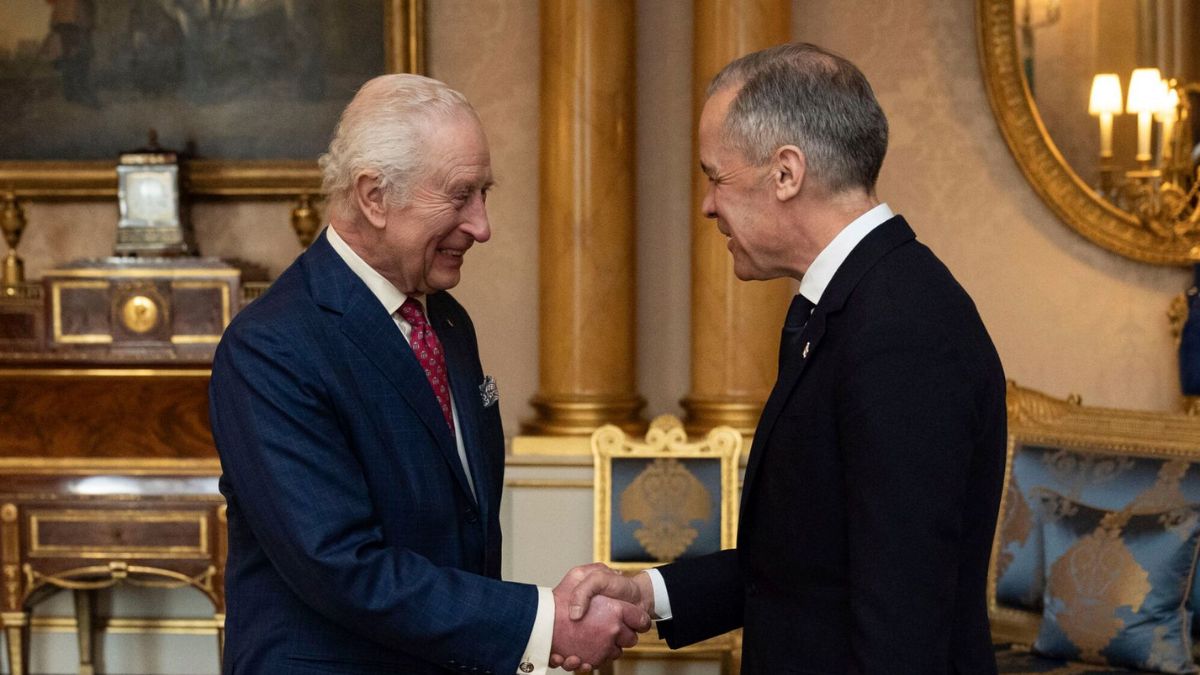King Charles will be in Canada today (May 26).
But this will not be a visit like any other he makes as king.
In fact, Charles is set to deliver a speech in Canada – of which he remains head of state – at the request of Prime Minister Mark Carney, an unusual occurrence in the country’s politics to say the least.
Charles also has a message in mind – Canada is a separate and sovereign nation from the US.
Let’s take a closer look
What gives?
The monarch hasn’t given a speech in Canada in decades.
In fact, Charles’ mother Queen Elizabeth II, who he addressed as ‘mummy’, only did so twice during her long reign.
The last time she did so was in 1977 – nearly five decades ago.
So, what gives?
Carney, who has invited King Charles, wants to emphasise the differences between the two nations.
While the US fought a violent revolution to gain its freedom, Canada remains a constitutional monarchy with a British-style parliamentary system.
“We’re different,” former Quebec Premier Jean Charest said. “We are not the United States. It sounds simple, but that’s what the visit says.
“We don’t have the same institutions. We don’t have the same history,” Charest said. “We are a different country with a different choice in terms of how we built ourselves, and King Charles tells that story.”
Impact Shorts
More ShortsThough Charles has visited Canada nearly two dozen times as a prince, he has never done so as king.
Charles has also been publicly displaying his support for Canada.
He was seen wearing Canadian military medals on his chest during a visit to a Royal Navy aircraft carrier.
Historian Robert Bothwell said that the king’s speech in Parliament “is a gesture of solidarity and identity that can be construed to be a gesture of support.”
However, US Ambassador to Canada Pete Hoekstra thinks this is unneeded.
“We’re thrilled that the king will be here. If there’s a message in there, you know, there’s easier ways to send messages. Just give me a call. Carney can call the president at any time,” Hoekstra told the Canadian Broadcasting Corporation. “But I know what the implication is. It’s, oh about … the 51st state, it’s over. And, you know, move on.”
What about the King’s speech?
Charles is meant to highlight the agenda for the Carney government – which returned to power recently.
Much like the monarch’s speech to the UK Parliament laying out the government’s plans, Charles will read what is written for him by the Canadian prime minister and his team.
The speech is normally read by Canada’s governor general – the monarch’s representative in Canada.
While this is a constitutional post, it is mostly ceremonial and symbolic.
“King Charles is unlikely to comment directly on the 51st state issue. Yet, his introductory remarks could feature broad statements about Canada’s integrity and sovereignty. At least this is what many Canadians would like him to do,” said Daniel Béland, a political science professor at McGill University in Montreal.
The speech will see ex-Canadian prime ministers and governor generals will attend the speech.
Charles will then pay his respects at the National War Memorial before a Royal Canadian Air Force flyby.
What about the Quebec’s French-speaking majority?
Béland said the monarchy has long been unpopular among Quebec’s French-speaking majority, and some nationalist voices in the province have been critical of the Carney government’s decision to invite the king to deliver the throne speech.
“Whether the separatists work themselves into a lather over this frankly, I don’t care. I don’t think Quebecers will care a lot,” said Charest, the former premier of Quebec. “They may not like the monarchy or whatever they’d like to read into it, but British institutions have served us very well.”
)